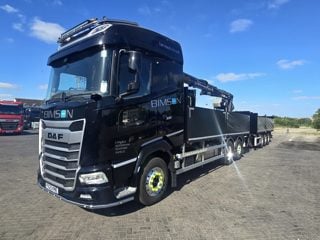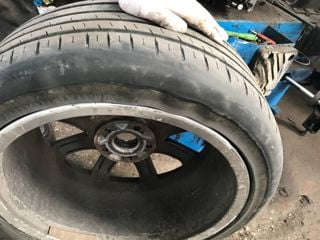Option 4: All-season tyres
All-season tyres (also known as all-weather tyres) might offer a good compromise. Peugeot plans to fit them to its new 2008 and Fiat puts them on the Panda 4x4.
They should perform better than standard tyres in the winter, and better than cold weather tyres in the summer.
Goodyear Dunlop says a number of police forces run them.
ATS Euromaster began offering all-season tyres last winter. Take-up has been relatively low compared to cold weather tyres but it expects to see growth.
Pros
The main reason to fit all-season tyres is to avoid the time and cost of changing tyres twice a year.
Depending on where the fleet operates, they may also be better-suited to the weather conditions.
They are designed to be used in wet, light winters, according to Fairlie.
Goodyear Dunlop says its Vector 4 Seasons will “go further on less fuel” and will help drivers “stay in control in rain or snow”.
Cons
A company operating where winters are typically harsh – Scotland, for example – would be better off fitting cold weather tyres.
Like cold weather tyres, availability may be an issue. Kwik Fit does not offer all-weather tyres.
Lambert says: “They are an expensive compromise and do not give the individual advantages of summer and winter tyres.”
Case study: DHL
Director of fleet: Richard Crook
Began fitting all-season tyres: End of 2011
Number of vehicles fitted to: 500 vans
DHL considered a standard and cold weather tyre policy but the cost of storage and refitting were too high.
“We made a commercial decision to go with the half-way house and fit all-weather tyres to our next batch of vehicles to see how they performed,” says Richard Crook, director of fleet at DHL.
So far the results have been positive.
“Drivers feel the vehicles are more stable in the cold weather.”
Tyre wear is in the “normal margins” for a fleet of DHL’s operation, according to its maintenance provider, and fuel efficiency has not dropped.
“We’ve not yet seen the impact of a really warm British summer though,” says Crook. “The relatively poor summer last year may have helped wear rates.”
The tyres are specified at the point of acquisition with about half of the van fleet currently running all-season tyres. There is a small uplift in price.
There is a small uplift in price – within 5% of a standard tyre.
“If we see a detrimental impact we have the option to convert to summer tyres,” explains Crook.
Whether DHL will fit all-season tyres to its 400 company cars is “open for debate”.





















Login to comment
Comments
No comments have been made yet.